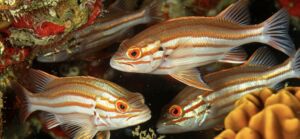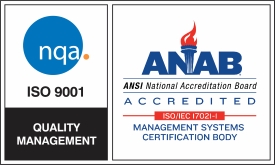How Adaptive Infrastructure Enhances Multi Species Aquatic Research?

In aquatic animal research, one size does not fit all. From zebrafish and amphibians to marine invertebrates, each species presents distinct environmental, physiological, and behavioral requirements. To ensure optimal research outcomes and meet ethical standards, laboratories must adapt their infrastructure to support this growing diversity. At Iwaki Aquatic, we specialize in delivering precision-engineered aquatic systems that meet the complex needs of modern research. In this blog, we explore how tailored infrastructure supports diverse aquatic species—improving animal welfare, research consistency, and operational efficiency.
Why Infrastructure Matters in Multi Species Aquatic Research
Aquatic research labs today are expected to house multiple species, often under one roof. However, different species require:
- Precise water temperature control
- Stable salinity and pH levels
- Species-specific flow rates and oxygenation
- Customized lighting and photoperiods
- Space for natural behaviors like schooling, burrowing, or nesting
Failure to meet these variables can cause stress, illness, and skewed data. A smart infrastructure setup is key to enabling reproducible science while upholding animal care standards.
Modular and Flexible Aquatic Systems
At Iwaki Aquatic, we advocate for modular aquatic systems that provide the flexibility to create species-specific environments. Our systems are:
- Scalable: Easily reconfigured to accommodate new species or research protocols.
- Customizable: Independent water loops, filtration, and temperature control for each tank or rack.
- Efficient: Designed for energy and water conservation through recirculating aquaculture system (RAS) technology.
This flexibility allows researchers to house freshwater and saltwater species in parallel, or isolate sensitive species without compromising biosecurity.
Built-In Water Quality Control for Species Health
Consistent water quality is the backbone of aquatic research. Iwaki Aquatic systems feature built-in controls for:
- Temperature regulation with inline heaters or chillers
- pH and conductivity monitoring to suit species-specific ranges
- Oxygen saturation using precision gas injection systems
- Filtration systems designed to reduce bio-waste and control nitrogen cycles
These features help researchers maintain ideal conditions 24/7, critical for long-term studies and species with narrow environmental tolerances.
Automation and Smart Monitoring
Advanced aquatic systems are moving toward full automation to reduce human error and allow for real-time adjustments. Our control units integrate:
- Remote monitoring of water parameters
- Automated alerts for deviations
- Custom settings for different species tanks
- Data logging for regulatory compliance and research documentation
This smart infrastructure enables hands-off reliability while ensuring responsive care tailored to the specific needs of each organism.
Explore Top 10 Design Considerations for Aquatic Research Systems
Meeting Ethical and Regulatory Standards
Adapting infrastructure is not just about function—it’s about compliance and ethics. Our systems are designed to meet:
- IACUC and AAALAC requirements
- Biosecurity protocols for multi-species facilities
- Enrichment guidelines that promote natural behavior and reduce stress
With transparent documentation and customizable features, our systems make regulatory audits more manageable and less time-consuming.
The Future: Sustainable and Species Centric Design
As aquatic research expands, infrastructure must evolve toward sustainable, species-centric systems. Future-ready facilities will rely on:
- AI-driven water quality control
- IoT-connected devices for lab-wide oversight
- Green technology to minimize energy and water consumption
Iwaki Aquatic is actively investing in next-gen solutions that combine reliability with environmental responsibility.
Final Thoughts
Designing infrastructure for diverse aquatic species isn’t just a best practice—it’s a scientific and ethical necessity. With the right systems in place, researchers can unlock more accurate data, extend the life and health of specimens, and ensure compliance with global standards.
Looking to upgrade your aquatic research systems?
Explore Iwaki Aquatic’s full range of customizable RAS and monitoring solutions, or contact us for a tailored consultation.



